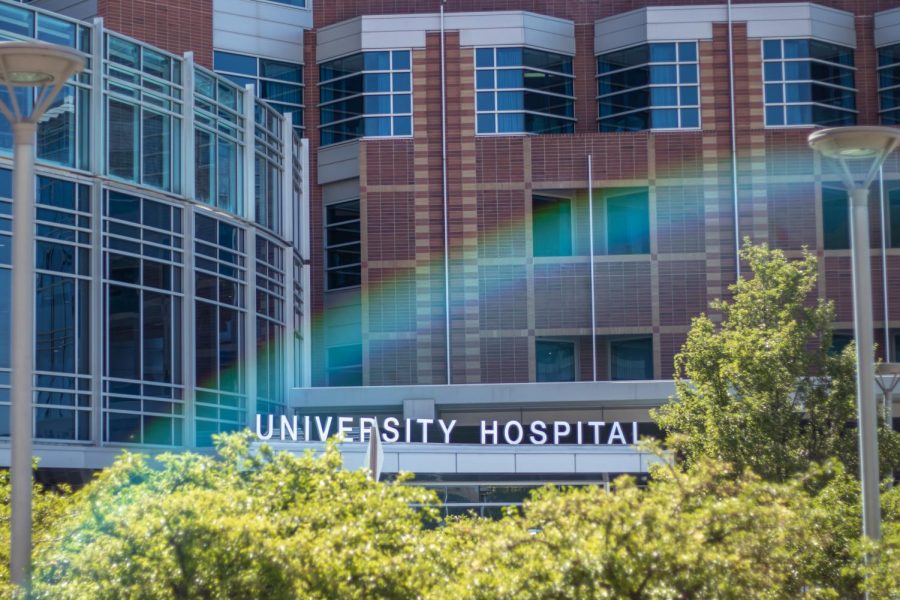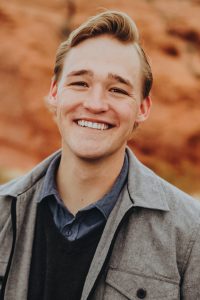Four years ago I received an email congratulating me on my acceptance into the University of Utah. I recall being ecstatic: it was the beginning of a new chapter in my life and an opportunity to do what many past generations in my family were not able to do — pursue higher education and set an example for my children and the future generations of my family.
Growing up as a minority, I was very aware that although I considered myself to be just as intelligent and well-spoken as my white peers, I wouldn’t always be perceived by others in this way. I suppose that a younger version of me was heartbroken by this reality, but the person I am today only sees that as a challenge to overcome.
I’ve been blessed in having a support system at home that has shown me that I am capable of doing anything my heart and mind set out to as long as I “Echale Ganas,” which in English means “work hard.” However, I am not naive and know that many of my fellow minority peers don’t have this support at home, so I set out and made it my goal to create an organization that would empower minority students, specifically those pursuing medicine, to meet their goals and prove to themselves that they are worthy and able of success.
The Minorities in Medicine Association was then born. At its core, MIMA is a student-run association, dedicated to empowering and uplifting minority students, as well as aiding them through their journey into the medical field. Minority students face a variety of issues that range from income and housing to more personal matters that deal with their sense of belonging in a white-washed world.
We may not be able to tackle every issue that minority students face on campus, as it would be difficult to do so because everyone’s experience is so diverse and different. But I was and continue to be optimistic about our ability to create a safe space for students and allies to find a sense of belonging with like-minded peers.
The reality is that minority students will continue to be a minority while pursuing higher education until there is a change, not only on campus, but also at home. There must also be a change in how we advocate for minority high school students to apply to college. It’s easy to look at the world and place the blame fully on our white counterparts, but the truth is that advocating must start at home, and with our high school counselors, who are supposed to be there to mentor us.
As a senior who attended a predominantly white high school, I still remember my counselors suggesting that I go to Salt Lake Community College or take a gap year before applying to the U despite having similar grades and experiences to my peers. At the time I couldn’t understand why this was being suggested to me, I still fully don’t, and if it hadn’t been for my father, who played and continues to play a very active role in my education, I don’t think I would have applied at all.
In the future, I do hope that my organization is able to play a more active role in mentoring minority high school students, and show them by example that you can pursue higher education despite the roadblocks set in front of us. The change must start with us or we will unfortunately see another generation of minority students who have been failed by not only the system but by us as well.
If you care about these marginalized communities, it is no longer enough to stand by and watch. Something has to be done, and that change has to come within.
Larger change can then be made once we’ve empowered ourselves, peers and younger generations. I do believe that the U is doing what it can to support minority students on campus, and of course, there are matters and issues that the U could improve on. No one is perfect and it’s in our human nature to make mistakes and learn from them. But we also have the ability to learn from past generations and make a difference for those who come after us.
Success comes from within, and as minority students, we have to fight harder for what we want. This may seem like a disadvantage from an outside point of view, but as I see it, it will only make our success that much sweeter.
— Amy Perez-Chavez, President and Founder of Minorities in Medicine Association
The Daily Utah Chronicle publishes guest op-eds written by faculty, elected officials and other members of the public on topics relevant to students at the University of Utah. The Chronicle welcomes guest op-ed pitches here.




John Hedberg • Feb 5, 2024 at 9:12 pm
Amy,
I think you mean well, but you talk about disparities like someone who’s never actually seen or lived in an impoverished neighborhood. Unlike the “inclusiveness” of MIMA (BIPOC-only?), poverty really is inclusive of everybody, of all stripes and colors, and those neighborhoods with endemic broken families, bad schools, and worse crime and living conditions have pale Euro people living right in the mix with everyone else. Outside of brand-new immigrants, which my family can broadly attest to, most poverty isn’t race-based but cultural: families whose interior culture stresses family, faith, hard work/play, and education rise out of “ghetto” zip codes with bad school districts in one generation, but people like my parents who succumb to immaturity, grievance, addictions, and their own uncurbed and unbridled instincts end up right back in those same neighborhoods along with their kids, and they stay there unless the kids find a way to be the grown-ups their parents never became or refused to be. It’s that simple, and so the family culture (as you said) and zip code you grow up in has much more to do with who succeeds in professional programs (or even finishes high school) than racism or any form of bigotry (besides prejudice against taking responsibility, which is a real thing 🤪).
The opportunities in this country outstrip nearly every other in the world, and nowhere is more open to choosing your own better life and achieving it than here, or branches of my family wouldn’t have all flocked here from 10 different countries and married each other (family of xenophiles 😊). I grew up in the Greater Boston Melting Pot, surrounded by (and taught by) immigrants from literally every country on the planet, and the fact is that slavery ended in this culture first out of the whole planet, and there’s still no place that offers more freedom and inclusiveness than America does, or people wouldn’t still be streaming here to build lives and families together every single day.
My experience is that most of the racism in this country springs from Equity, people whose vision has been rainbow-washed to see and expect bigotry only from certain kinds of faces, which is itself projecting Equity’s racism onto millions of innocent human beings who grew up with Dr. King and never had any problem with diversity, since families of all flavors have been jumping the broom together in this Union since long before 1776. Those who hate are those who believe superficial differences matter, and these days, it’s Equity’s totem-worshippers who are primarily preaching bigotry, and therefore those who are advocating needless and anti-human separation and segregation, both on-campus and in society.
I’m intersectional & BIPOC (descended from immigrants of 3 Latino countries), but I have a Swedish grandparent, which is what makes family reunions so interesting in the US: I have siblings and cousins with light hair and dark hair, lighter skin and darker skin, lighter eyes and darker eyes, and just my family alone ties into at least 10 different ethnicities. I’m not unusual in this ‘Great American Melting Pot’: tens of millions of us are also multi-racial and/or poly-ethnic, and you can no longer tell anyone’s ancestry just by looking at them or by hearing their last name. After generations of intermarriage, that era is long gone.
Equity is poison, since it highlights, promotes, and perpetuates prejudice based on sight alone by falsely concluding that race is at the heart of disparity in this, the most socially- and economically-mobile culture on Earth. True religion teaches us that our identity is based on our common humanity, which we all share equally, and to Love each child of God (by Whatever Name) the way good parents do, since we, very diverse children, are all equally lovable and beloved, and our mutual well-being and happiness is a Parent’s first responsibility at all times. That’s why every great culture has its own version of “Love your neighbor as yourself”, since “the least of these” neighbors is just as human as you, just as fallible as you, and just as Lovable as you, in God’s eyes By Any Name, and in each other’s, if we’re honest and choose to value each other the way good parents do, which is unfailing Love.
This human identity is what Dr. King taught, who was a Protestant minister (Christian Nationalist! 😂😂 hardly!). This human identity is what Malcolm X taught after his epiphany in Mecca, and he was Muslim. This human identity is what Mahatma Gandhi taught, and he was Hindu: both he and Malcolm were killed by brethren who refused to give up worshipping Equity’s divisive and divided hate-totem, as was Jesus of Nazareth, who also taught this same human identity, and he was Jewish.
Equal Love for every individual based on our common human Family is why these folks (among many others) remain so vividly in memory, and why their message spread so widely. Among every diverse group, individuals recognized the common identity we all share and decided to act on it, to live by it.
Diversity, EQUALITY, and Inclusion are based on equal Love for every unique individual, a standard we all fall down striving to meet every day, but it’s the Love which forgives the scrapes and inevitable bumps along the road to maturity, forgives even as we are forgiven by good parents, out of Love which picks us up to keep us striving continually for that more perfect union that’s the only real ‘safe space’ we’ll ever know: each other, our Common Family. That’s the actual path to Peace, the Mountain-Top Dr. King tried to get us all to see together.
Aim high, Amy, if that’s the pinnacle you want to reach~! Faithfully,